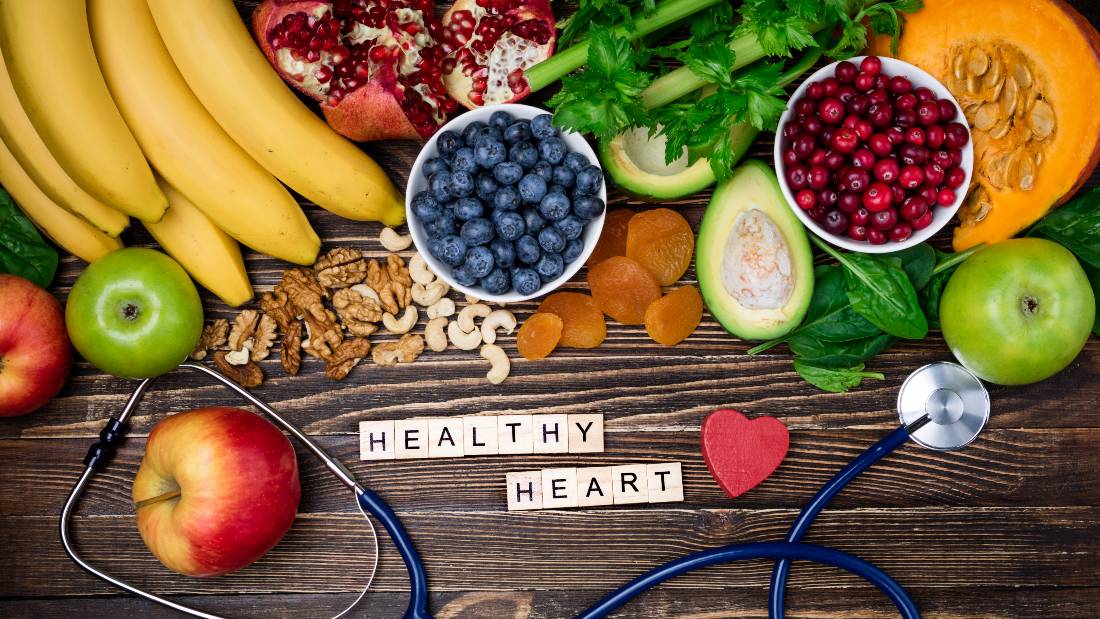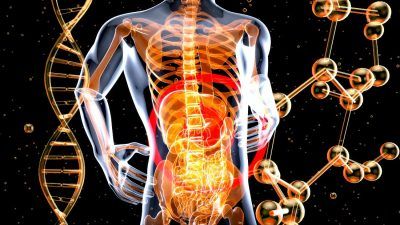8 ways to keep your heart healthy

With Valentine’s Day approaching, some of us may be putting our heart through the wringer. We might not always be able to control the emotional health of our heart but there’s a lot we can do to influence its physical health. Therefore, here are eight ways to keep your heart healthy and ready to cope with whatever cupid throws at it.
1. Wholehearted wholegrains
Wholegrains provide healthy energy, nourish our bodies and are cheap staples but that’s not all. They also offer a number of health benefits, especially for the heart.
Oats and other wholegrains, such as wheat, bran and barley, contain beta glucan (as do mushrooms), a type of fibre. Beta glucan has been shown to lower LDL cholesterol (the bad type) and reduce blood pressure, both of which are risk factors for cardiovascular disease. In fact, if you eat two or three servings of wholegrains a day, it may reduce your risk of heart disease by 20 per cent and heart attack by 30 per cent!
So, even if no Valentine’s card lands on your doormat this year, you can start the day right with a bowl of porridge or overnight oats for breakfast.
2. Oiling the wheels of a healthy heart
Fats from meat, dairy and tropical oils, such as coconut and palm, are high in saturated fat which raises cholesterol and contributes to heart disease. On the other hand, vegetable and seed oils are considered healthier as long as they are not hydrogenated (a practice which most manufacturers are dropping but do check the ingredients).
In particular, olive oil is unique for its high percentage of monounsaturated fat. Between 70 to 85 per cent of olive oil is monounsaturated oleic acid – omega-9 fat. This is not an essential fat but is thought to have cholesterol- and blood pressure-lowering properties. This, together with the fact that olive oil contains phytosterols – another group of compounds helping to lower cholesterol – contributes to olive oil’s heart-protective properties.
In short, don’t be afraid to cook with rapeseed oil and use olive oil for dressing your avocado salad – another great source of monounsaturated fat.
3. Opening your heart to nuts
Numerous studies have shown that nuts – especially walnuts and pistachios – can be very beneficial to heart health. Nuts are high in the amino acid arginine, which can be used by the body to produce nitric oxide, and this is vital for relaxation of the blood vessels which in turn helps to keep them flexible and prevents high blood pressure.
Studies consistently show a protective effect for heart health associated with eating nuts. Four major studies (The Adventist Health Study, the Iowa Women’s Health Study, the Nurses’ Health Study and the Physicians’ Health Study) found the risk of dying from heart disease was 37 per cent lower for those eating nuts more than four times per week compared to those who never consume nuts, with an average of 8.3 per cent reduction in risk of death for each weekly serving of nuts. Just a small handful is enough though!

4. Chocolate isn’t just for Valentine’s Day
Chocolate has been shown to improve endothelial function – like nuts, it relaxes the blood vessels and improves circulation. Another systematic review found that “the majority of the research conducted in this area indicates that regular cocoa/chocolate ingestion can reduce BP [blood pressure]”. The review concluded that chocolate has so many potential health benefits that, as long as it contains a high percentage of cocoa and little to no sugar, most people would benefit from an “habitual intake”.
High blood pressure is the biggest risk factor for heart disease in the UK, with up to 50 per cent of heart attacks and strokes being associated with it. Just as high blood pressure increases the risk of atherosclerosis by damaging the blood vessels, atherosclerosis increases the risk of high blood pressure by reducing blood flow – any cardiovascular risk factor can have a massive effect on your health. Therefore, even if you don’t get given a box of chocolates this Valentine’s Day, you have permission from scientists to treat yourself but remember, the darker, the better!
6. Swap the green-eyed monster for leafy greens
Vitamin K is a somewhat neglected player in heart health. Vitamin K regulates the amount of calcium in the blood, utilising it for building bones, and plays an important role in blood clotting. However, according to a 2021 review, it also reduces “arterial stiffness, vascular and valvular calcification, insulin resistance and heart failure indices which ultimately increase cardiovascular mortality.”
Leafy green vegetables are by far the best source of vitamin K: spring greens, kale, spinach, cabbage, watercress, broccoli and Brussels sprouts all contain substantial amounts. Herbs and other vegetables (parsley, lettuce, asparagus, coriander, green beans, peas, cauliflower, runner beans, mustard and cress and leeks) provide an excellent source too.
Leafy greens such as spinach and kale also contain high levels of nitrate (although it is found in all plant foods). Our body converts nitrates into nitrites and then eventually nitric oxide which helps to maintain healthy, flexible blood vessels.
Instead of turning into a green-eyed monster, transform into a leafy green one!
7. The true colours of love
Brightly coloured fruit and veg are high in antioxidants, including flavonoids in berries and lycopene in tomatoes – surprisingly higher in cooked tomatoes and organic tomato sauce. Yes, bright colours are great but there are also many less flamboyant foods, such as cocoa and mushrooms, which contain some of the most potent antioxidants you can find! Antioxidants also exert an anti-inflammatory effect. Inflammation plays a big role in many diseases, including cardiovascular disease, and some studies have shown that diets high in antioxidants can help prevent a range of health problems, including heart disease

8. Care for a dance?
Last but not least is exercise. Diet can only do so much to protect your heart without regular cardiovascular exercise. Just as bicep curls strengthen your biceps, cardio exercise strengthens your heart and blood vessels. Aerobic exercise which gets your heart pumping, such as a brisk walk, jogging, swimming and even dancing, improves circulation, lowers blood pressure and even cholesterol. When you exercise, certain enzymes are stimulated which remove LDL (‘bad’) cholesterol from your blood to your liver where it can be converted into bile and then excreted from the body (admittedly, that doesn’t sound very romantic). But, whether you have a Valentine’s date or not, hit that dance floor (or the privacy of your own sitting room floor, if that makes you more comfortable) and get your body movin’.
If you abide by these eight rules for a healthy cardiovascular system, your heart will be in good shape to ride the ups and downs of the rollercoaster of love.







